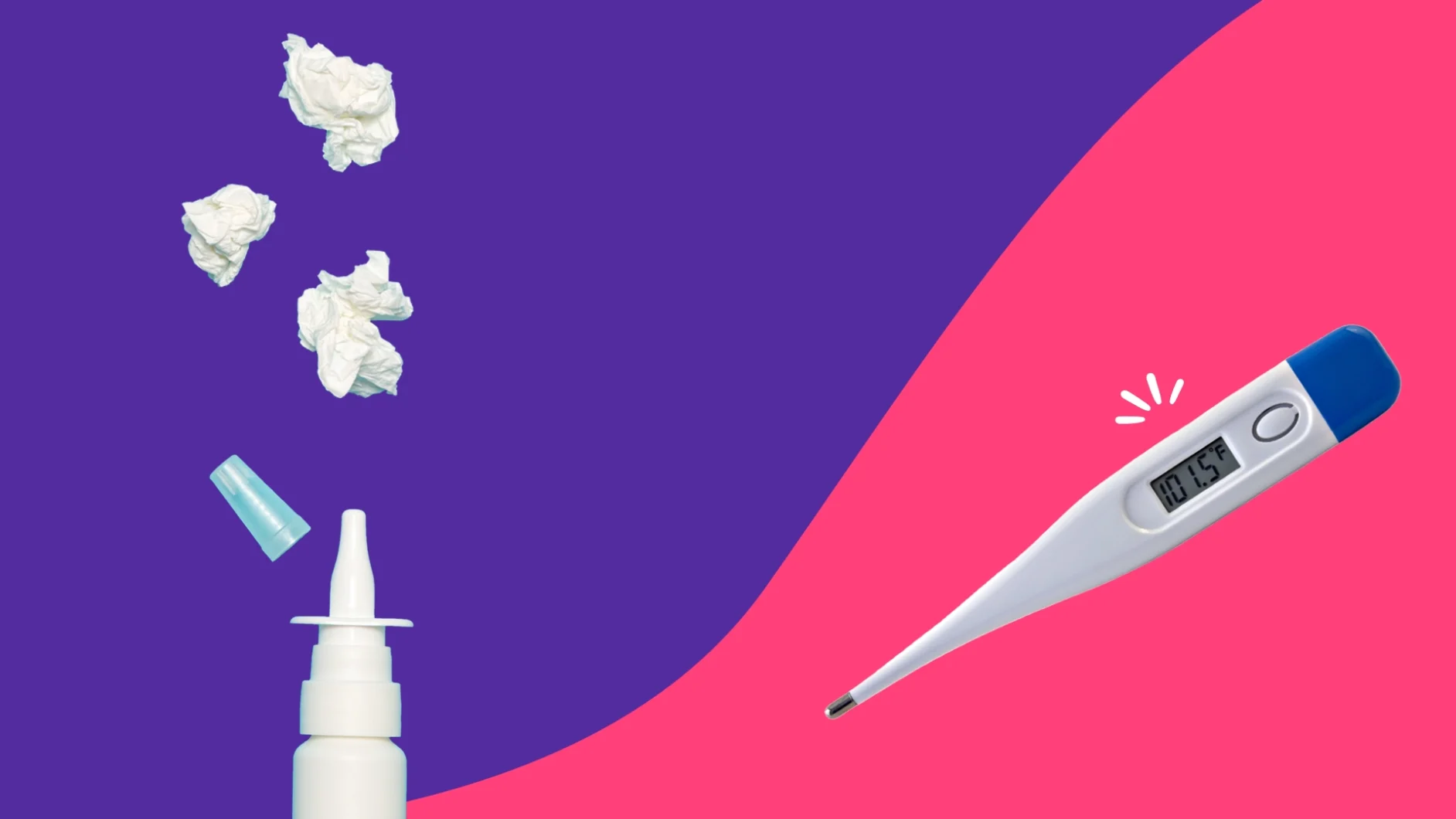Key takeaways
A sinus infection can cause a fever, but it’s not one of the most common symptoms.
Your fever may last one to 10 days, depending on what’s causing your sinus infection.
Home remedies and over-the-counter medications can help keep your fever down and help with symptom relief.
Most sinus infections don’t require antibiotics.
Sinus infections, also known as sinusitis, occur when a virus or bacteria causes inflammation and mucus buildup in your nasal passages. The swelling of the tissue lining your sinuses causes stuffy nose, facial pain, sneezing, runny nose, nasal congestion, sore throat, postnasal drip, and other symptoms that can feel similar to a common cold. They vary in length of illness and severity.
Acute sinusitis is usually caused by a virus and typically lasts seven to 10 days. If symptoms persist beyond 7-10 days, your infection might be caused by bacteria. Sinus infections are considered chronic when lasting longer than 12 weeks. Fever is one of the symptoms of sinusitis, though it is more common with one type of infection.
Does a sinus infection cause a fever?
A sinus infection, like any other infection, can cause a fever. This symptom is more common with acute sinus infections that are bacterial or viral in nature. Chronic sinus infections, those lasting 12 weeks or more, typically don’t cause a fever. Chronic sinusitis is often related to structural abnormalities like a deviated septum, blockage, nasal polyps, or other growths.
“Typically, a bacterial sinus infection is going to cause someone to get a lot more sick than a viral infection,” says Dhaval Desai, MD, Director of Hospital Medicine at Emory Saint Joseph’s Hospital of Atlanta. Unlike cold symptoms, bacterial sinus infections can cause high fevers, severe sinus pain, eye pain, toothache, fatigue, and green-yellow nasal discharge, he says. This thick mucus can drip down the back of your throat, potentially interfering with your sense of smell and causing bad breath.
Is it normal to have a fever with a sinus infection?
It’s not common to have a fever with a sinus infection. “Fever is not necessarily part of a sinus infection and is present in a minority of the cases—about 15% of patients,” says David Stepnick, MD, otolaryngologist and Department Chair of Otolaryngology at MetroHealth Health Systems.
How long does a fever last with a sinus infection?
If you have a viral sinus infection, you may have a low-grade fever for one to three days. An acute bacterial sinus infection can cause a higher fever for five to 10 days, reaching temperatures up to 102 degrees Fahrenheit.
How to treat a fever from a sinus infection
The treatment options for a fever from a sinus infection vary depending on the severity, duration, and type of sinus infection.
If your fever is mild (less than 100.94 °F) and suspected to have a viral sinus infection, no treatment is necessary unless the fever is making you uncomfortable.
If your fever is higher (greater than 100.94 °F) or is suspected to be a bacterial infection, your healthcare provider may recommend fever-reducing medication or prescribe antibiotics to fight the infection.
The following tips can help manage a fever:
- Rest and stay hydrated. This can help your immune system fight the infection and avoid dehydration from increased sweating.
- Take over-the-counter medication, such as Tylenol (acetaminophen) or Advil (ibuprofen), to reduce fever.
- Try a lukewarm bath to reduce discomfort.
- Wear lightweight clothing to avoid feeling too hot.
Tylenol coupons, Ibuprofen coupons
Do you need antibiotics for a sinus infection with a fever?
Most cases of sinusitis do not require the use of antibiotics and go away on their own, even if you have a fever. “Antibiotics only slightly increase symptom relief, and the presence of a fever does not necessarily mean that a patient should receive an antibiotic prescription,” says Dr. Stepnick.
If your healthcare provider determines you need an antibiotic, the most commonly prescribed are amoxicillin and Augmentin (amoxicillin-pot clavulanate). Dr. Stepnick recommends the “watchful waiting” method of seeing how long your sinus infection takes to subside because most will get better naturally.
Amoxicillin coupons, Augmentin coupons
When to see your healthcare provider
You can alleviate many symptoms of a sinus infection with home remedies—such as warm compresses, steam inhalation, humidifiers, sinus rinses with a Neti pot, or drinking hot tea—or by taking over-the-counter medications, such as nasal sprays, decongestants, antihistamines, and pain relievers to reduce sinus pressure. If you have diabetes, are immunocompromised, your fever doesn’t improve after 7-10 days, or if your symptoms start to improve but suddenly worsen, contact your healthcare provider. This could be a sign that you have a bacterial sinus infection and may require antibiotics to treat your infection.
- Sinus infection, ACAAI (2023)
- Acute Bacterial Rhinosinusitis, Cedars Sinai (2022)
- Chronic Sinusitis, The Cleveland Clinic (2023)
- Sinus infection basics, Centers for Disease Control and Prevention (2023)
- Patients insist on antibiotics for sinusitis? Here is a good reason to say “no,” The Journal of Family Practice (2008)




